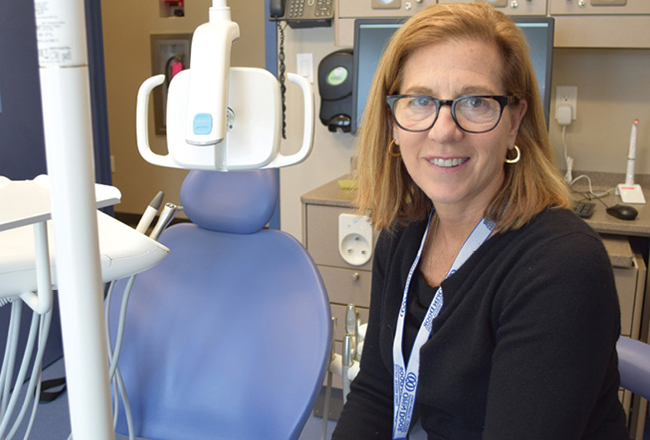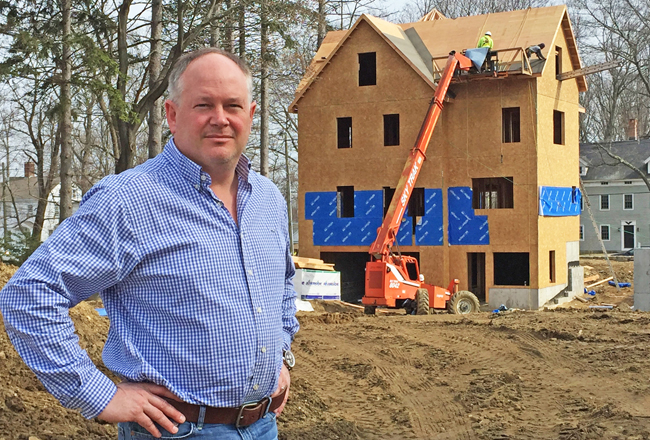Reverse mortgages still have a negative connotation for many. Stories of senior citizens losing their life savings through such transactions permeate the internet, coupled with headlines about “the reverse mortgage con” strike fear into the hearts of homeowners seeking to draw value from the investment in their house.
But those fears are mostly misplaced, according to Nick Buscaglia, senior vice president for residential mortgage at M&T Bank, which maintains branches throughout Fairfield and Westchester counties. “A lot of that is misinformation that dates back to when they first appeared in the ”™80s,” he said.
“But over the past several years it”™s become a lot better,” in part by the strict code of ethics established in 1997 by the National Reverse Mortgage Lenders Association, Buscaglia said.
 “Of course,” he added, “there”™s always the caveat of knowing who you”™re dealing with and making sure it”™s the right product for you.”
“Of course,” he added, “there”™s always the caveat of knowing who you”™re dealing with and making sure it”™s the right product for you.”
Most banks in Fairfield and Westchester ”“ including People”™s United, Patriot, Newtown Savings Bank and The Westchester Bank ”“ do not offer reverse mortgages. While they did not respond to requests for further comment, a recent survey by the mortgage consultancy Stratmor Group found that “reputation risk” was the top reason for eschewing reverse mortgages, followed by “distraction from the forward business,” “lack of in-house expertise,” and “belief it won”™t be profitable.”
Buscaglia said he thought the last point was particularly resonant. “Reverse mortgages are a small product,” he said. “It”™s a spit in the ocean compared to the first mortgage business, and other banks believe they aren”™t worth their while.”
M&T takes the point of view that it”™s another valuable offering for its customers, he added. “We”™re one of the few out there who try to meet every single customer face-to-face,” he said. “We want them to be able to see us, touch us and know who they”™re dealing with. A lot of other companies do it all by phone.”
While Buscaglia declined to say how many reverse mortgages M&T does each year, data from the U.S. Department of Housing and Urban Development (HUD), which oversees the market, indicates that there aren”™t that many taking place locally. The state of Connecticut recorded a total of 435 reverse mortgages in 2016 ”” last year”™s numbers are not yet available ”” compared with 597 in 2015. New York totaled 2,198 in 2016, down from 3,238 the year before.
Last year, John M. Tolomer, president and CEO of The Westchester Bank, told the Business Journal that reverse mortgages were “not something that is popular with our client base.” Jason Milligan of Norwalk”™s Milligan Realty said that although “I have been involved with them when there are short sales and they have been somewhat hard to deal with,” his firm “didn”™t have a ton of experience with reverse mortgages.”
Nevertheless, the activity in Connecticut has been sufficient enough for state Sen. Tony Hwang ””whose district includes Easton, Fairfield, Newtown, Weston and Westport ”” to push for legislation introduced through the Aging Committee in February that would prevent a reverse-mortgage lender from originating a reverse mortgage unless it has informed the applicant of the HUD counseling requirement, received certification that the applicant has attended the counseling session, and that the counseling session was conducted in person.
The legislation is intended to bring Connecticut more closely in line with HUD requirements, which mandate that any borrower seeking such a transaction receive counseling by a Federal Housing Authority-approved person before the borrower incurs any costs for the loan. In fact, Hwang”™s measure goes a step further, by requiring in-person counseling which the FHA prefers, but does not insist upon.
In a statement, Hwang said that such counseling can help seniors understand the tax implications of the mortgage payout and what rights a nonborrowing spouse has upon the borrower”™s death.
“The financial institutions certainly weren”™t volunteering to educate their clients,” he said. “Requiring counseling and additional recordkeeping provides more protection for consumers, particularly our seniors, who might fall victim to predatory lenders.”
Meanwhile, last month the Trump administration proposed a permanent end to the cap on the number of reverse mortgages.
“The budget will again propose permanently lifting the cap of 275,000 loan guarantees to provide further stability for the (Home Equity Conversion Mortgage) program,” the White House wrote in its proposal for the fiscal 2019 HUD budget. “This proposal reflects the
significant improvements that have been made to the program to reduce risk to the (Mutual Mortgage Insurance) Fund and to ensure responsible lending to seniors.”




















